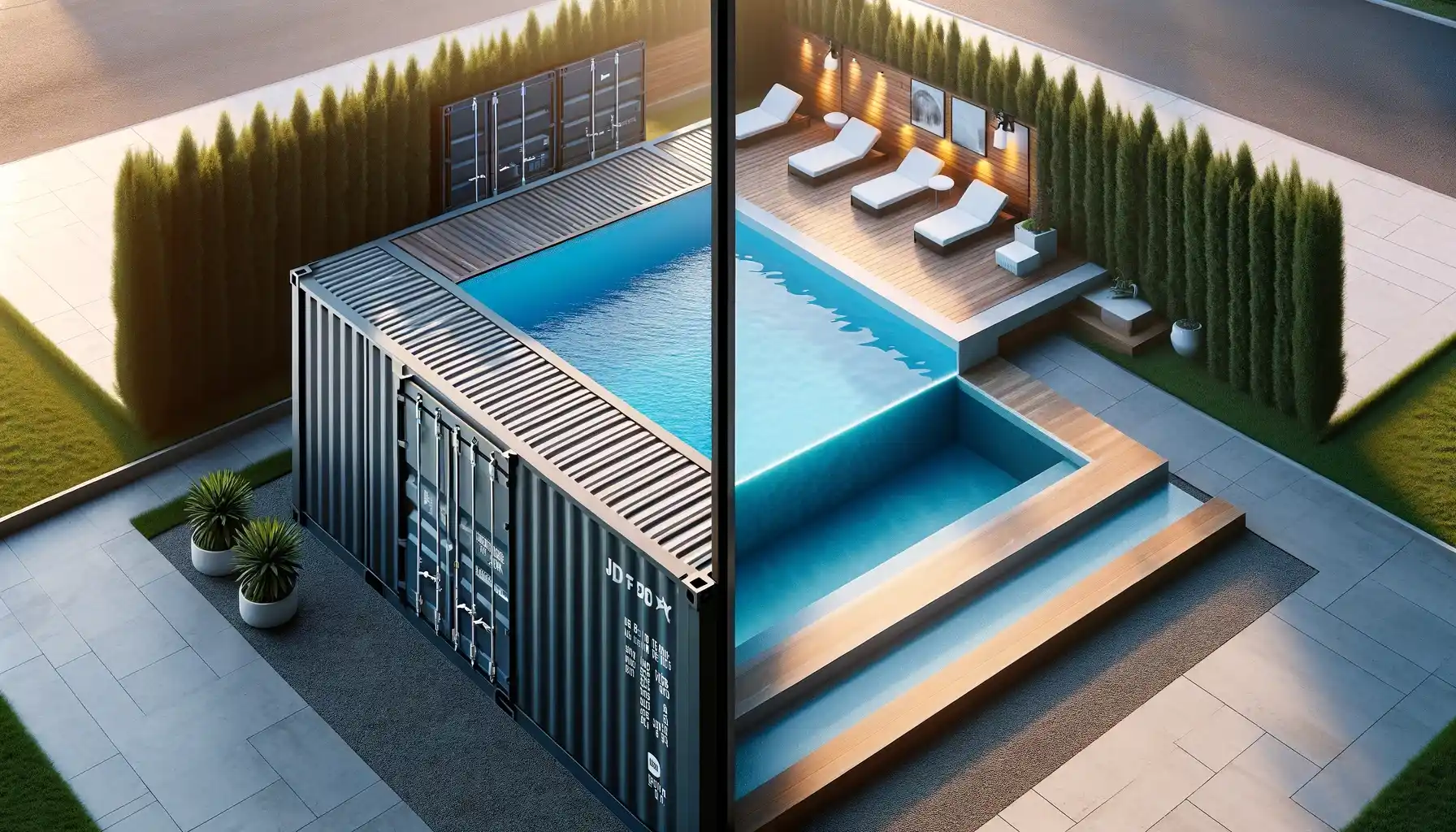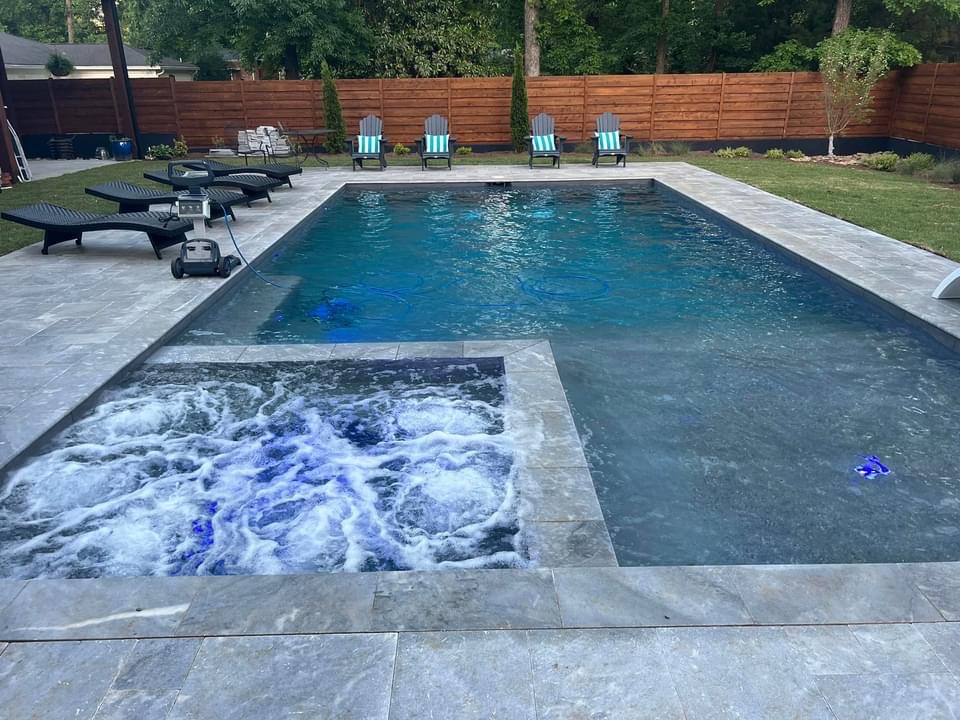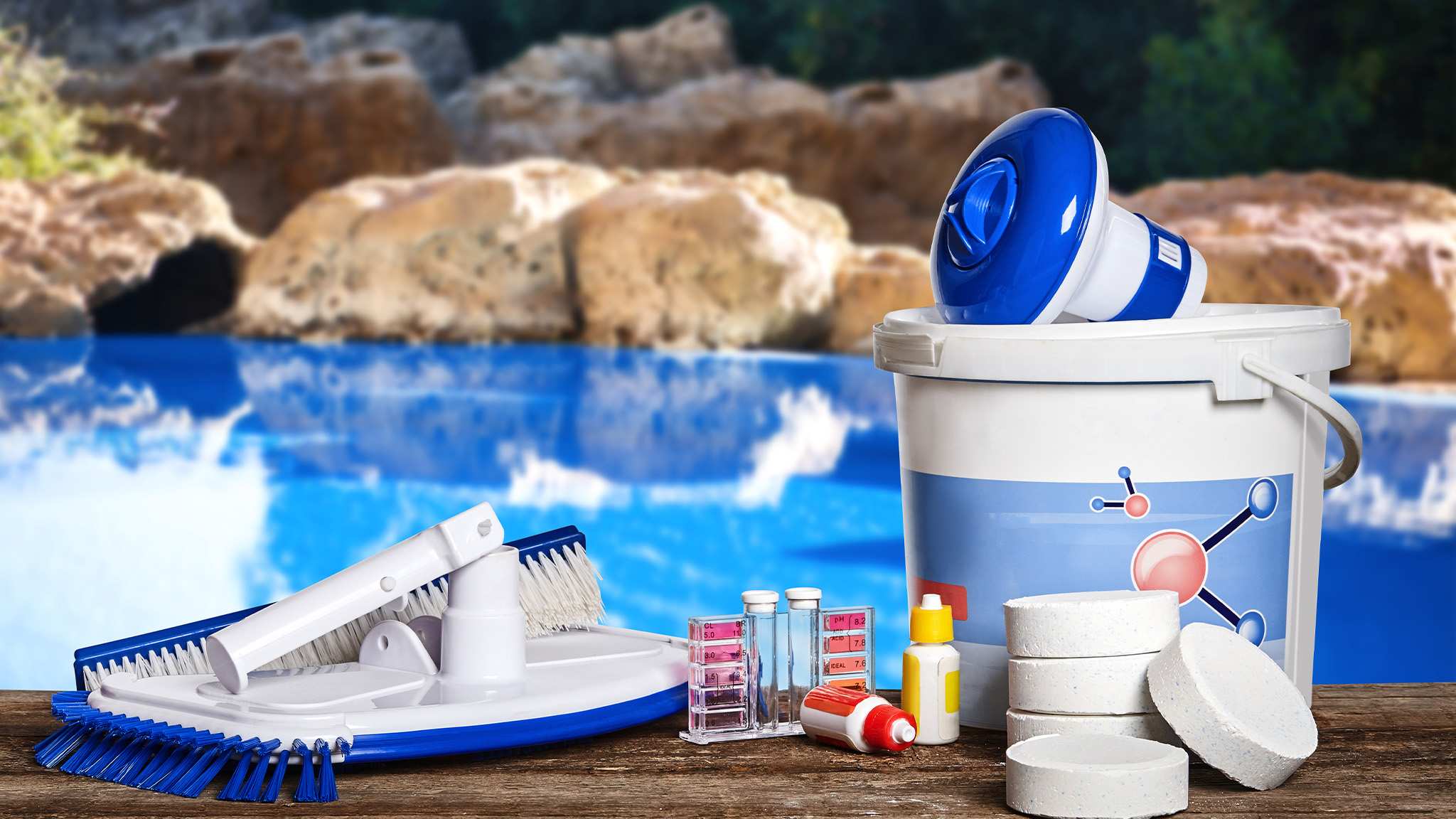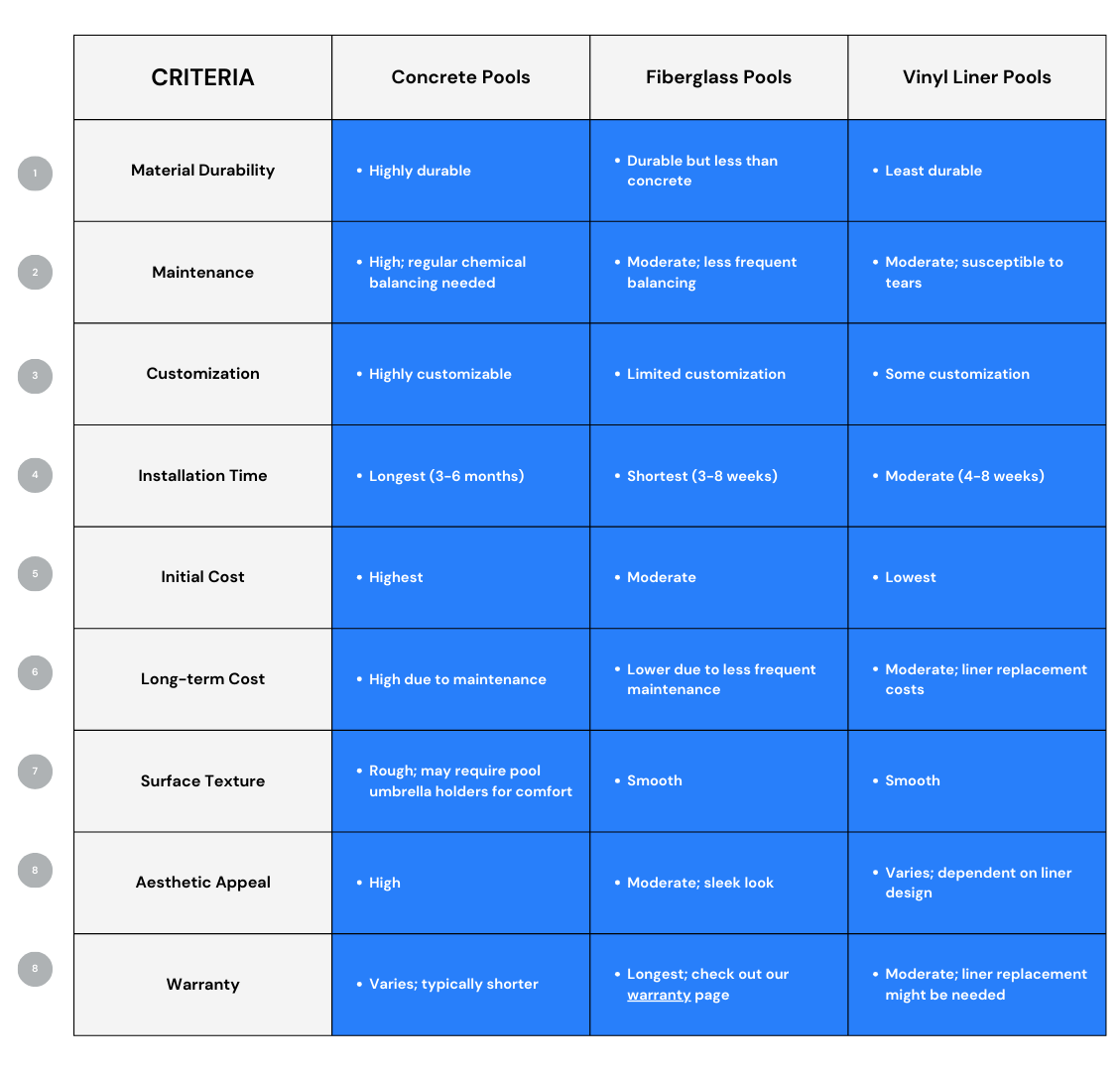
Fiberglass vs Concrete Pools: Pros, Cons, and Cost Comparisons

When embarking on the exciting journey of installing a pool, homeowners are faced with a critical decision: choosing between fiberglass and concrete pools. Both pool types have distinct characteristics that cater to different preferences and requirements. In this comprehensive comparison, we delve into the nuanced pros and cons of each, guiding you toward making the most informed decision for your backyard oasis.

Latest


Pool Flocculants vs. Clarifiers: What’s Best for Your Pool?

From Solar to Gas: Your Pool Heater Handbook
Categories
Fiberglass Pools: Pros and
Fiberglass Pools: A Synopsis of Benefits and Drawbacks
The Advantages of Fiberglass Pools
Fiberglass pools are widely recognized for their minimal maintenance demands. The non-porous surface is less hospitable to algae, substantially reducing the need for chemical treatments and frequent cleanings. The sleek gel coat finish not only offers aesthetic appeal but simplifies upkeep, all while providing a pleasant tactile experience.
Installation speed is another hallmark of fiberglass pools. Typically, they can be installed within a matter of weeks, thanks to pre-fabricated designs that are delivered ready to be placed into the excavated site, making the dream of pool ownership a quick reality.
Durability is a noteworthy aspect of fiberglass pools. They are constructed to withstand various environmental stresses and can efficiently endure for 25 to 30 years with proper care, featuring a gel coat that shields against potential damage.
The Limitations of Fiberglass Pools
However, potential owners should be aware of certain limitations. The upfront knowledge of a fiberglass pool’s quality may not be apparent until years post-installation, making the selection of a reputable contractor paramount.
Logistical considerations, such as the cost of transportation due to the size of pre-molded pools, can add a significant amount to the overall expense. Furthermore, customization is restricted since designs are reliant on pre-existing molds, which may not align with every homeowner’s vision.
Cons
Quick Installation and Low Maintenance
One of the leading advantages of a fiberglass pool is its quick installation. The pool comes as a single, pre-fabricated unit, which means that it can be installed in a matter of days. Plus, with a gel-coated, non-porous surface, algae and bacteria find it hard to take root, making cleaning less labor-intensive. You can also expect to spend less on pool chemicals over time.
Did You Know?
The gel coating in fiberglass pools also resists fading and rarely needs resurfacing or repairs. Visit our learning page for more information.
Limitations to Consider
However, fiberglass pools are not without their drawbacks. Their size and design are limited by the dimensions that can be transported by truck. So if you’re looking for a pool longer than 40 feet or wider than 16 feet, you may need to consider other options. Additionally, should the gel coating crack, matching the original color for repairs can be challenging.
For those interested in this option, be sure to check out our Imagine Pools collection.

Concrete Pools: Weighing the Pros Against the Cons
The Perks of Concrete Pools
Customization is where concrete pools shine, offering limitless possibilities in design and aesthetics. Homeowners with specific visions can materialize unique shapes and sizes, transcending the constraints of prefabricated molds.
The longevity of concrete pools is impressive, with lifespans extending up to 50 years when maintained correctly, including periodic resurfacing. Their resilience against harsh conditions is a testament to their robust construction, capable of enduring both scorching summers and frosty winters.
The Drawbacks of Concrete Pools
On the flip side, the installation process for concrete pools is time-intensive, taking several months due to the complexities involved in their construction. This is coupled with higher initial costs, which escalate further with customization.
Maintenance demands for concrete pools are substantial, with weekly cleaning sessions necessary to prevent algae proliferation. The porous nature of concrete surfaces necessitates diligent care, which can contribute to a greater lifetime cost due to upkeep and repairs.
Evaluating Fiberglass and Concrete Pools: Feature by Feature
Aesthetic Appeal and Texture
Aesthetic appeal is subjective; however, the versatility in concrete pool designs typically offers a broader range of possibilities to satisfy individual tastes. In contrast, fiberglass pools provide a polished look with a smooth finish that appeals to those prioritizing simplicity and ease of use.
Customization and Flexibility
For those seeking a bespoke swimming pool, concrete is the clear frontrunner. Its adaptability in shape and style allows for a personalized pool-scape that reflects the homeowner’s individuality and complements the landscape.
Cost-Effectiveness and Long-Term Investment
While concrete pools may carry a higher initial investment, they offer longevity that may offset the upfront cost over time. Fiberglass pools, generally less expensive to install, can present savings both in the short term and through reduced maintenance expenses.
Installation Timeline and Convenience
Fiberglass pools boast a significant advantage in installation time, presenting an expedient solution for eager homeowners. Concrete pools require a more patient approach, with a longer timeframe from conception to completion.
Maintenance Requirements
Maintenance is a crucial factor in pool ownership. Fiberglass pools require less frequent attention due to their smooth surface, whereas concrete pools demand more regular maintenance to stay in pristine condition.
Repairability and Damage Resistance
In terms of repairs, fiberglass pools offer ease with quick fixes for common issues. Concrete pools, while harder to damage, can be more challenging and expensive to repair due to the nature of the material.
Lifespan: The Long Haul
Both pool types are durable, but concrete pools typically outlast fiberglass, boasting lifespans that can reach or exceed half a century with proper care.
Making the Informed Choice for Your Pool
In summary, the choice between fiberglass and concrete pools is not one-size-fits-all. It hinges on personal preferences, lifestyle, and long-term goals for your home’s outdoor space. Homeowners should weigh the merits of rapid installation and lower maintenance against the allure of customization and enduring durability. With this thorough comparison, we strive to empower you with the knowledge to make a choice that best aligns with your vision for a backyard retreat.
When deliberating over pool types, consulting with a seasoned pool company can provide additional insights tailored to your situation, and we are just the guys for you. Our team of professionals is at your service to provide expertise and guidance tailored to your unique requirements. We can offer expertise on local considerations and help you make your decision.
Latest

Shipping Container Pools or Fiberglass Pools: Who Wins?

Pool Flocculants vs. Clarifiers: What’s Best for Your Pool?

From Solar to Gas: Your Pool Heater Handbook
Categories
YOU'RE NOT IN THIS ALONE
We are with you every splash of the way
Need a pool fix or looking for an upgrade? We’re just one click away to help with all your pool needs.

